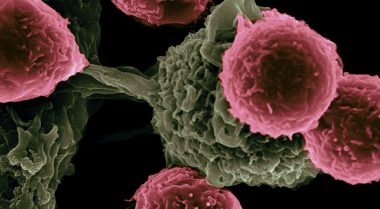Ambitious “rising stars” programme to explore cardiovascular disease, cancer and other complex conditions
15 May 2024 | Author: Debs Mathisen, Research Communications Manager
The Health Data Research UK (HDR UK) Big Data for Complex Disease Driver Programme has awarded six prestigious fellowships, with a total of £1.8 million funding.
Following an open competition, led by the HDR UK Training Team together with Queen’s University Belfast (QUB), six talented early career researchers have been awarded fellowships to accelerate their careers for a future in health data science.
Of the six new fellowships, two have been jointly funded with the HDR UK Molecules to Health Records Driver Programme, to enhance integration and collaboration across research programmes and bring the best of UK health data science together to address significant health challenges.
Exploring a range of conditions from cardiovascular disease and cancer to severe mental illness and diabetes, the six new projects will help deliver the ambitious aims of the Big Data for Complex Disease (BDCD) and Molecules to Health Records programmes.
Professor Cathie Sudlow, Chief Scientist and Deputy Director of HDR UK, Director of the BHF Data Science Centre and co-director of the BDCD programme, said:
“This rapid and innovative recruitment process has been highly successful. We received a large number of strong applications, reflecting the great talent that exists in the health data science domain. The fellowships will address important questions to improve prediction of diseases such as cancers and cardiovascular diseases, the interrelationship between them, and the impact of inequalities. The projects span institutions across the four nations of the UK, and cover topics from mental illness to health economics and trustworthy artificial intelligence.”
The approach taken to recruit fellows, set out in our accompanying report, enabled an open, transparent, agile, effective and rapid process.
Professor Mark Lawler, Professor of Digital Health at Queen’s University Belfast, Scientific Director of DATA-CAN, the UK’s Health Data Research Hub for Cancer and co-director of the BDCD programme, said:
“These six fellows and their mentorship teams exemplify the power of team science in unlocking the potential of health data science across the UK. Selecting some of the best young minds in health data science marks the beginning of exciting collaborative endeavours poised to make impactful strides in understanding complex diseases and addressing healthcare disparities. We look forward to working with these high-quality fellows and advancing health data science for better health and wellbeing in the coming years across the four nations of the UK. These leaders of the future will help establish the UK primacy of health data science, locally and globally.”
Out of the six awarded fellowships, there are equal numbers of clinical and non-clinical fellows, maximising our ability to deliver high-quality, high-impact health data science. The fellows and their supervisors are from HDR UK member universities across the UK: UCL, Cambridge, Leeds, Oxford, Nottingham, Swansea, Edinburgh, Queen’s University Belfast, LSHTM, KCL, Dundee, and Leicester.
Funded fellows
Naomi Launders – Health Inequalities in Cancer and Cardiovascular Disease in People with Severe or Complex Mental Illness
Cancer and cardiovascular disease (CVD) are the two most common causes of mortality in the UK. Given the known health inequalities in prevention, treatment and outcomes of cancer and CVD in people with mental illness, it is important that research focusing on CVD and cancer includes mental health as a factor. It is desirable to identify patient groups less likely to access cancer or CVD screening, or more likely to suffer missed or late diagnoses.
This project aims to draw on Electronic Health Records (EHRs) and other routinely collected data across the UK to quantify differences in cancer and CVD diagnosis rates and outcomes across mental health conditions, social determinants of health and other patient characteristics. It also aims to establish which patient characteristics lead to the co-occurrence of CVD, cancer and severe and complex mental illness (SCMI).
Elias Allara – Identifying opportunities for prevention of coronary heart disease and stroke in patients from different ethnic groups with non-cardiovascular conditions
This HDR UK Fellowship aims to find ways to prevent the onset of coronary heart disease and stroke among people with other long-term conditions. The problems are frequently caused by a build-up of fat in the blood vessels that supply oxygen to the heart (coronary heart disease) and brain (stroke) and this is why they are referred to as cardiovascular diseases. Some patients with coronary heart disease and stroke suffer from illnesses in other parts of the body such as the pancreas and kidneys (‘non-cardiovascular diseases’). Researchers have already found links between some non-cardiovascular diseases (for example, diabetes) and either coronary heart disease or stroke. This means that people with these illnesses can be followed up, advised to change habits which can affect their health, or given medications to address both diseases.
Currently, we do not know much about the links between most non-cardiovascular diseases and either coronary heart disease or stroke, especially in minority ethnic groups, and the mechanisms by which these links work. This HDR UK Fellowship project aims to address these knowledge gaps by studying large numbers of people from different ethnic groups, using mathematical methods that can help find links between the diseases. By doing this, the Fellow hopes to find ways to help people who have non-cardiovascular diseases avoid coronary heart disease and stroke in the future.
Katie Spencer – ENQUIRE: Using routine health data to understand equity in NHS cancer care
Half of people in the UK will develop cancer in their lifetime, but outcomes are not as good as those in economically similar countries. For example, if our outcomes matched those seen in Sweden, we would lose over 300,000 life years less in the UK each year due to cancer. In the UK, outcomes are worse for people from poorer areas but we don’t fully understand why. This could be due to having more advanced cancer at diagnosis, other medical conditions or receiving different care. Reducing health inequalities is an agreed high priority. Without understanding what the causes are though it’s difficult for policymakers to know what to do. We need information that spans the whole cancer pathway and that recognises the cost of delivering changes to existing care pathways.
This project seeks to understand how money is spent on cancer care in the NHS. It will use real-world data from patients treated for four common cancers (lung, bowel, oesophageal and lymphoma) to find out how much NHS cancer treatment costs. It will look at what, where and on whom money is spent to understand if this is fair for all people with cancer. For example, for people from poorer parts of the country or who are treated at different hospitals. The project will see if these differences are leading to worse cancer outcomes or if these are due to other things. This can be tricky to work out so the Fellowship project will use newer methods, called causal inference, to help understand this.
By working with NHS leaders and patients the project will make sure that the results presented can help them to find ways to reduce cancer inequalities. This will help to ensure that all patients get the right care and have the best chance of surviving cancer, no matter what their background or where they live.
Ramesh Nadarajah – FIND-HFpEF: Understanding how common heart failure with preserved ejection fraction is, how patients do after diagnosis, and trying to predict its occurrence to enable earlier diagnosis
Heart failure (HF) is a condition consisting of symptoms (e.g. breathlessness, ankle swelling), clinical signs, and structural and/or functional abnormality of the heart. As many cases of HF are diagnosed each year in the NHS as the four most common causes of cancer combined, and HF has a worse prognosis than each of bladder, prostate and breast cancer. Heart failure is split into two types; where the heart is weak (heart failure with reduced ejection fraction) and where the heart does not relax enough to pump effectively (heart failure with preserved ejection fraction, HFpEF). HFpEF is becomingly increasingly common, and is forecast to become the most common type of HF. However, little is known about the scale of how many people have HFpEF in the UK, and how often HFpEF causes hospital admission or death after diagnosis. Also, many of these patients have delays to diagnosis, even after presenting to their GP with symptoms consistent with HFpEF.
This Fellowship aims to use whole population, national linked health data to investigate how common HFpEF is, how people do after diagnosis, and whether inequalities affect this. It will also seek to develop a prediction model for HFpEF to help identify people with HFpEF earlier, in the primary care setting, so they can get the right treatment earlier.
Genevieve Cezard – Understanding the relationship between diabetes and the development of multiple long-term conditions in Scotland, England and Wales
Diabetes is associated with a range of complications such as heart, kidney, eye and foot conditions. In addition, people with diabetes are at higher risk of getting multiple diseases compared to people without diabetes. The set of diseases which affect people with diabetes has shifted over time due to improved risk management of these complications and because of the consequences of the COVID-19 pandemic (i.e. change in lifestyle, reduced access to health services and increased risk of developing new diseases).
This fellowship focuses on the additional longer-term conditions that people with a new diagnosis of diabetes develop. The health journeys of people with diabetes compared to those without diabetes will be followed during the unique period of the COVID-19 era (2020-27) when lifestyles and access to health services changed dramatically. Using hospital and GP health records across the entire populations of England, Scotland and Wales (around 70 million people in total), this research will study the health consequences of having a new diagnosis of diabetes and for diverse population subgroups (by sex, age, ethnicity, socio-economic status and region). The results will inform guidelines on how people with diabetes can be best followed up in England, Scotland and Wales.
Ralph Akyea – Improved Risk Stratification in Primary Care: Leveraging ‘Big Data’ and Trustworthy Artificial Intelligence
The proposed research focuses on improving the identification of individuals with familial hypercholesterolaemia (FH). FH is a common inherited cause of raised cholesterol since birth, affecting about 320,000 people in the UK. Unfortunately, over 80% of individuals with FH remain undiagnosed and untreated, leading to an estimated 140,000 avoidable heart attacks and premature deaths in the UK alone. However, the timely identification and use of cholesterol-lowering medication can significantly reduce the risk of developing heart disease and other serious health conditions.
This research pioneers a new interdisciplinary approach of work, with an interdisciplinary team of stakeholders including patient and public members, to this problem by harnessing routinely collected electronic health records with artificial intelligence (machine learning) methods to develop, validate, and evaluate a trustworthy AI clinical decision support tool for use in primary health care practice. By harnessing AI’s potential with ‘big’ data, this clinical tool could improve FH detection, potentially saving thousands of lives by facilitating early intervention and appropriate management strategies.



